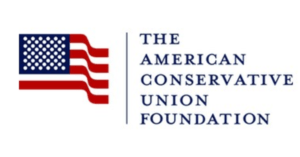
![]()

![]()
![]()
Memorandum
To: United States Sentencing Commission
From: Pat Nolan, American Conservative Union Foundation
Patricia Allard, Justice Strategies
Jessica Jackson, Cut50
Marc Levin, Right on Crime Coalition
Arthur Rizer, R Street Institute
Date: July 9, 2017
Pope Francis recently explained last year: “The test of the morality of a society is what it does for its children.” Incarceration of parents of young children not only punishes fathers and mothers, but extracts a punishment from the children as well. The results? Children of the incarcerated face increased mental health and behavioral problems, academic difficulties, delinquency, and economic challenges. And these long-term consequences create an environment that replicates itself in future generations, thus, proving Einstein correct when he defined insanity as, “doing the same thing over and over again and expecting different results.”
The United States Sentencing Commission has the mandate to review the impact of parental incarceration on minor children. With more data, the Commission could modify the Sentencing Guidelines and allow judges to take this factor into account when sentencing individuals for non- violent crimes. By doing so, the Commission can mitigate current consequences for families of incarcerated parents, that while unintended, harm innocent minors.
Overview
A growing body of research indicates that incarceration of adults has a significant impact on children. The collateral consequences imposed on children of incarcerated individuals potentially create a vicious cycle that increases crime and harms communities. As a result, both practitioners and policy-makers are looking for ways to mitigate these unintended effects. One key avenue for consideration is to provide alternatives to incarceration for parents of young children.
Role of the U.S. Sentencing Commission
The United States Sentencing Commission plays a critical role in criminal justice policy. The USSC’s job is “to collect, analyze, research, and distribute a broad array of information on federal crime and sentencing issues, serving as an information resource for Congress, the executive branch, the courts, criminal justice practitioners,” the academic community, and the public.”(1)
Given the growing concerns about the impacts of incarceration on children, we believe the Commission should explore this area more fully. Specifically, we urge the USSC to undertake a substantial research project to assess the scope of the problem at the federal level and consider whether the guidelines should be amended to provide judges more authority to depart from a recommended sentence range to address the needs of children of incarcerated parents.
Scope of the Problem
With roughly half of all those incarcerated having minor dependents, over two million children in the United States are directly affected by parental incarceration. Recent research on the problem has established the fact that minors with one or more incarcerated parents have statistically significant increases in mental health and behavioral problems, and lower standardized test scores than control groups.
Equally troubling, this dynamic goes beyond the families of incarcerated fathers and mothers. Children who merely attend school with those having incarcerated parents face similar mental health and academic challenges.
As a result, a system that fails to take into account these effects will repeatedly undermine the well- being of communities as incarceration has significant social costs, including intergenerational transmission of poverty, crime, violence and incarceration.(2) Research has found that the concentration of risk found within many families and communities facing parental incarceration, such as poverty, adverse neighborhood conditions, and violence exposure, may be predictive of an intergenerational cycle of crime and incarceration (3) Failure to address these realities will lead to greater decay of communities and an increase in incarcerations, all of which will be borne by the taxpayers.
Research Findings
Decades of research documenting the detrimental impact of parental incarceration on children has shown a close yet complex connection between parental incarceration and adverse outcomes for children. Scholars at Cambridge University’s Institute of Criminology have conducted a series of investigations on this topic.(4) Their research shows that parental imprisonment is associated with children having three times the odds of engaging in anti-social behavior and experiencing more negative outcomes as they grow to adulthood (e.g., school failure, unemployment, underemployment, etc.). The studies also found that missing an incarcerated parent was associated with sadness, withdrawn behavior, sleep problems, aggressive behavior, and truancy.(5)
A similar study sponsored by the National Academies of Science, The Growth of Incarceration in the United States: Exploring Causes and Consequences,(6) confirmed that paternal imprisonment directly correlates with higher rates of delinquency and other behavioral problems suffered by children of incarcerated parents.(7)
Researchers J. Scott Moody and Wendy Warcholik, who have developed the Family Prosperity Initiative (FPI), further address the intergenerational problems experienced by families of incarcerated individuals. In their 2017 Index, Moody and Warcholik explain how incarceration hinders the familial outlook for economic prosperity and self-sufficiency:
More than 5 million children have had at least one parent in prison at some point in their life. These children have to deal with a number of additional challenges including a higher number of other major, potentially traumatic life events—stressors that are most damaging when they are cumulative; more emotional difficulties, low school engagement, and more problems in school, among children ages 6 to 11; and a greater likelihood of problems in school among older youth (12 to 17), as well as less parental monitoring. Overall, the negative economic and social consequences of incarceration are intergenerational…. [I]ncarceration of one member of the family, by definition, leaves the other member as a single parent.(8)
In 2013, Professor John Hagan presented even more alarming research. In research sponsored by the American Bar Foundation, Hagan found that the high U.S. parental incarceration rates jeopardize children’s access to educational opportunities. He found that the U.S. college graduation rate of 40 percent among youth drops to two percent among children of incarcerated mothers and approximately 15 percent for imprisoned fathers.(9)
Even more startling is Hagan’s finding that incarceration is likely to impact children who do not have a parent behind bars. Hagan determined that even when children have no direct experience with parental incarceration, the mere fact they may attend a school where 10 to 20 percent of other parents are imprisoned, the college graduation rate drops by half. Clearly, the collateral consequences of parental incarceration are viral.
In January 2011, Justice Strategies published Children on the Outside: Voicing the Pain and Human Costs of Parental Incarceration.(10) This report, authored by Patricia Allard, provided findings from in-depth interviews and structured focus groups with a wide array of people directly affected by parental incarceration and those who grapple with the issue in a professional capacity. She met with children whose parents were incarcerated; parents living in prison; family members and caregivers of the children; educators, caseworkers and counsellors who work in re-entry programs to assist parents coming home after prison terms. She documented their personal assessments of the impacts of parental incarceration on children as they grow into young adulthood. A summary of the findings is as follows:
- An undermined sense of stability and safety–The sudden removal of a parent from daily life fundamentally undermines a child’s sense of stability and safety.
- Threats to economic security – Parental incarceration, unsurprisingly, impacts the economic circumstances of children and the extended family.
- A compromised sense of connectedness and worthiness – Parental incarceration presents significant obstacles to a child’s experience of the kind of unconditional bond with parents needed to lay the foundation for a stable adult life.
- Loss of attachments and ability to trust – Once the parental presence is removed, many young people have trouble trusting others and letting caring adults into their lives.
- No sense of having a place in the world – Children typically experience parental incarceration as a form of rejection; they see the parent’s reckless behavior as having taken precedence over their family.
It is not surprising that the separation of a parent from his/her child will have deleterious psychological and emotional effects on the child. What is noteworthy is that these impacts go beyond the children, and can affect entire peer groups for generations.
Conclusion
In the United States Sentencing Commission’s March 2003 report, more than half of both district and circuit court judges indicated that they “would like to see more emphasis at sentencing placed on … the offender’s family ties and responsibilities.”(11) Federal judges appear to be as eager as other policy makers, practitioners and researchers to examine and mitigate the harms of parental incarceration on children.
Additional research is needed to more fully understand and mitigate the unintended consequences of incarcerating parents. How many children are impacted? What type of information about the incarcerated parent’s family ties and responsibilities do federal judges seek? How might the Sentencing Guidelines be amended to allow more judicial discretion when considering the appropriate sentence for a father or mother with minor children?
We urge the USSC to undertake a substantial research project to determine the detailed scope of the problem, and to identify how federal courts can maintain public safety while insulating the most vulnerable from harm.
With this groundwork in place, the Commission could then consider whether the Guidelines should be amended to provide judges more authority to depart from a recommended guideline sentence range when appropriate to address the needs of children for parental care and support.
1 United States Sentencing Commission overview, found at: http://www.ussc.gov/about-page.
2 Sara Wakefield and Christopher Wildeman, Mass Imprisonment and Racial Disparities in Childhood Behavioral Problems, CRIMINOLOGY AND PUBLIC POLICY, Vol. 10, Issue 3 (2011).
3 Mark Eddy and Julie Poehlman. Editors, Children of Incarcerated Parents: A Handbook For Researchers And Practitioners at 147, URBAN INSTITUTE PRESS, Washington, D.C. (2010).
4 Joseph Murray and David Farrington, The Effects of Parental Imprisonment on Children, CRIME AND JUSTICE: A REVIEW OF RESEARCH (Michael Tonry, Editor), University of Chicago Press, Chicago, IL. (2008).
5 Murray and Farrington, Evidence-Based Programs for Children of Prisoners, CRIMINOLOGY AND PUBLIC POLICY, Vol 5, No. 4 (2006).
6 National Research Council, The Growth of Incarceration in the United States: Exploring Causes and Consequences, NATIONAL ACADEMIES OF SCIENCE (2014), found at: https://doi.org/10.17226/18613 (2014).
7 Jeremy Travis, Bruce Western, and Steve Redburn, Editors, The Growth of Incarceration in the United States: Exploring Causes and Consequences, THE NATIONAL ACADEMIES PRESS, Washington, D.C. (2014).
8 J. Scott Moody and Wendy Warcholik, The Family Propserity Index: Family Self Sufficiency, AMERICAN CONSERVATIVE UNION FOUNDATION (2017), found at: http://familyprosperity.org/media/2017-family-prosperity-index/2017-family-prosperity-index-family-self-sufficiency.
9 John Hagan, Parental Incarceration in the United States: Bringing Together Research and Policy to Reduce Collateral Costs to Children, A REPORT FOR THE AMERICAN BAR FOUNDATION (2013), found at: http://www.americanbarfoundation.org/uploads/cms/documents/white_house_conference_summary.pdf.
10 Patricia Allard and Judith Greene, Children on the Outside: Voicing the Pain and Human Cost of Parental Incarceration, JUSTICE STRATEGIES (2011), found at: http://www.justicestrategies.net/sites/default/files/publications/JS-COIP-1-13-11.pdf.
11 Linda Drazga Maxfield, Survey of Article III Judges on the Federal Sentencing Guidelines, UNITED STATES SENTENCING COMMISSION OFFICE OF POLICY ANALYSIS at 8 (2003), found at: http://www.ussc.gov/sites/default/files/pdf/research-and-publications/research-projects-and-surveys/surveys/200303-judge-survey/execsum.pdf.